FAMI PROG-2094 – Migrants Coming-App
Academic board
UniSalento
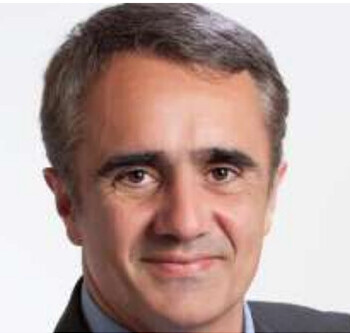
Luigi Melica
Direttore scientifico
UNIVERSITÀ DEL SALENTO
Luigi Melica is a full Professor at the State University of Salento (Italy) (www.unisalento.it); he is Director of the Training School for magistrates and advocates, University of Salento and Member of the Scientific Committee of the Comparative and European Review.
Luigi Melica is a full Professor at the State University of Salento (Italy) (www.unisalento.it); he is Director of the Training School for magistrates and advocates, University of Salento and Member of the Scientific Committee of the Comparative and European Review. For almost 15 years, he is an experienced Team Leader in European Projects and Scientific Coordinator in EU Masters and Training and Research projects. His fields of research are: Justice and Home Affairs. In the Justice sector: reform of the Judicial system, Pre – Trial Investigations in criminal law, Constitutional reforms in various States, Constitutional Justice; in the Home Affairs sector: security studies, combat of illegal immigration, police and law enforcement agencies reform, international anticorruption policies, trans-border security cooperation, analysis of financial flows of criminal organisations from non EU countries. Has also participated as key-note speaker on a number of relevant National and International Conferences, mainly dealing with European integration and related issues, institutional and political transitions all over the world, migration and related issues.
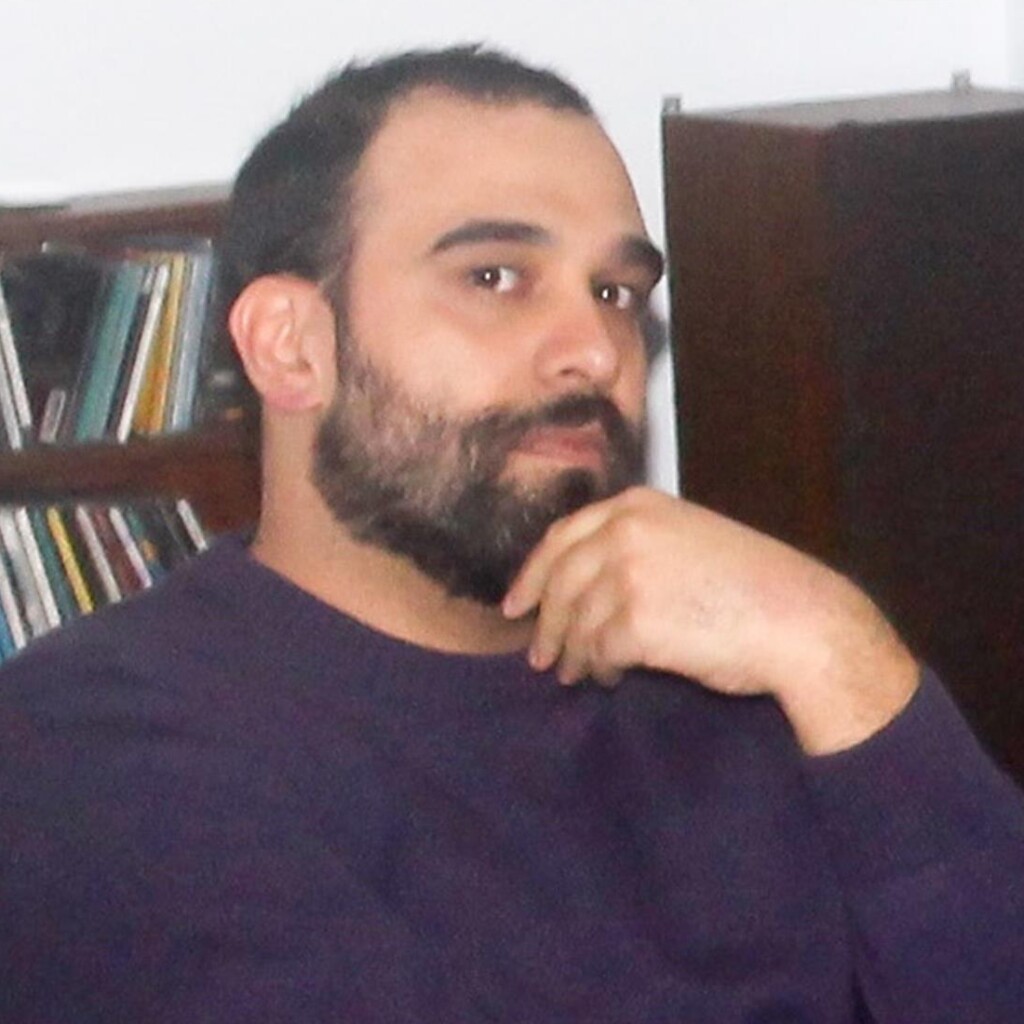
Antonio Ciniero
UNIVERSITÀ DEL SALENTO
Antonio Ciniero (1982) is PhD in Theory and Social Research, from March 2016 to May 2019 has been Postdoctoral Researcher at the Italian National Institute of Statistics (ISTAT).
Antonio Ciniero (1982) is PhD in Theory and Social Research, from March 2016 to May 2019 has been Postdoctoral Researcher at the Italian National Institute of Statistics (ISTAT). He teaches sociology of migrations at the University of Salento. Since its founding, he is researcher of International Center of Interdisciplinary Studies on Migrations (ICISMI). Since 2015 he is a member of the international research group “MARG-IN”: Marginalization Inclusion: les effets à moyen long terme des politiques de régulation de la pauvreté étrangère-sur les populations cibles: le cas des migrants dits ‘roms’ dans les villes d’Europe West.
Since 2004 he has attended many sociological researches using qualitative and quantitative methodologies. His researches involve: construction of otherness in the globalization and in migration policies of European countries; work and social integration for immigrants and refugees, social and economic changes affecting the labour market and social exclusion, with particular reference to the Roma people and seasonal agricultural workers.
His publications include: Il lavoro agricolo nell’area jonico-brindisina dagli anni ‘70 ad oggi: tra modernizzazione, caporalato e patriarcato, in Osservatorio Placido Rizzoto, a cura di, Agromafie e Caporalato V, (Ediesse edizioni, Roma, 2020); Economia flessibile e vite precarie. Lavoro e migrazioni nel racconto dei cittadini stranieri (Liguori, Napoli, 2013); Il lavoro agricolo gravemente sfruttato in Idios, a cura di, Dossier Statistico Immigrazione (Confronti, Roma, 2017), Crisi economica e lotte autorganizzate. Lavoro, sciopero ed esclusione dei braccianti a Nardò (2011-2015) in Sociologia del Lavoro 2015 n.4 (140); Employment in Civil society monitoring report on implementation of the national Roma integration strategies II in Italy. Assessing progress in key policy areas of the strategy (European Commission, Brussels, 2019).
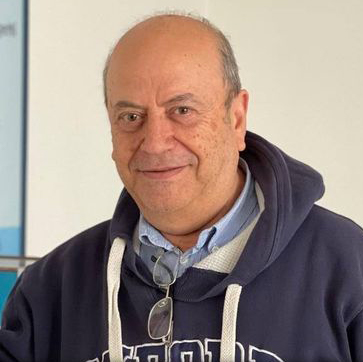
Luigi Di Viggiano
UNIVERSITÀ DEL SALENTO
Pasquale Luigi Di Viggiano is Adjunct Professor of IT Laboratory of Social Planning and Project Management – Master’s Degree Course in Euro-Mediterranean Governance of Migration Policies; Deputy Director of the Centro di Studi sul Rischio and teacher for the “Digital Administration” module of the SSPL (Graduate school for the legal professions) and the APPREST Master; scientific director of FAMI action research: Migrants coming-App, Department of Legal Sciences, University of Salento. PhD in Legal Sciences, he deals with legal informatics and legal sociology. He is the author of monographs, essays and articles in national and international journals. Among his most recent publications: Legal perspectives of intelligent machines, in «Electronic Journal of Law, Economics, Management», Year VII, n. 3/2017; Artificial intelligence and organizational communication. Technologies for Business Project Engineering in health, Tangram Scientific Editions, Trento, 2019.
Maggiori informazioni
- PhD in Legal Sciences.
- Professor in Sociology of Electronic Communication at the University of Rome Unitelma Sapienza
- Professor in Legal Informatics at the School of Specialization for Legal Professionals, Salento University.
- Professor in Digital Healthcare at the UNINT – Università degli Studi per l’Innovazione Internazionali, Rome;
- Deputy Director of the Centro di Studi sul Rischio (CSR), University of Salento, Lecce, Italy.
- Component of the Scientific Council of the Laboratory of e-Government (LEG) – University of Salento, Lecce, Italy.
- Member of the Scientific Council of the IRIA Observatory (Internet of Things, Robotics and Artificial Intelligence), National School of Digital Administration, Unitelma Sapienza of Rome, Italy.
- Component of the ANDIG (Associazione nazionale docenti di informatica giuridica e diritto dell’informatica), Rome, Italy.
- Visiting professor at the Universitatea ”Petru Maior ”din Targu Mures, Romania.
- Component of International Scientific Committee in International Conference on Law and Public Administration organized by „Petru Maior” University and University of Medicine and Pharmacy Consortium of Tirgu Mureș; within the Research Centre in the Field of Urbanism and Public Policies of „Petru Maior” University of Tirgu-Mureș, Romania.
- He is involved in digital communication, legal and health information technology, robotics and law, social research methodology and juridical sociology. He studies the evolution of the digital state and its organizational and communicative structure.
- He participates in the Project TheoMed-Risk Apulia Region – University of Salento, within the DReAM (Diffusion Interdisciplinary Research Laboratory Applied to Medicine)….He is a member of SIFD (Italian Philosophical Society).
He is Author of monographs, essays and articles on national and international journals. Among the latest publications:
- Lo Stato e le sue burocrazie digitali, «Rivista elettronica di diritto, economia, management», n. 1-2014;
- Sanità digitale e Welfare elettronico, in «Rivista elettronica di Diritto, Economia, Management», Anno V, n. 3/2014;
- La costruzione dell’agenda digitale: temi e prospettive d’Informatica giuridica, Tangram Edizioni Scientifiche, Trento, 2015;
- Informatica giuridica e rischio sanitario. Aspetti teorico-giuridici del consenso informato, in De Benedetto M., Preite G. (a cura), La governance del rischio in sanità tra comunicazione e consenso informato, Tangram Edizioni Scientifiche, Trento, 2017;
- Robotics, Rights and Liabilities. Juridical prospects of intelligent machines, Curentul Juridic, 2017 – 2018, vol. 72, No. 1, pp. 88-103;
- , Prospettive giuridiche delle macchine intelligenti, in «Rivista elettronica di Diritto, Economia, Management», Anno VII, n. 3/2017 – Edizione Multimediale, Atti del Seminario su “La robotica ed il lavoro. Uomini e/o macchine?” – Roma, CNEL 07/11/2017, Peer Review, Editor ClioEdu, Roma-Lecce, pp. 36-56
- , Etica, robotica e lavoro: profili d’Informatica giuridica, R. Opin. Jur., Fortaleza (Br), anno 16, n. 22, p. 247-266, jan./jun. 2018;
Contact: Dipartimento di Scienze Giuridiche – Università del Salento – Lecce – tel. +39 0832 298453
E-mail: diviggianoluigi@gmail.com; PEC: luigi.diviggiano@pec.it.
https://www.unisalento.it/scheda-utente/-/people/luigi.diviggiano
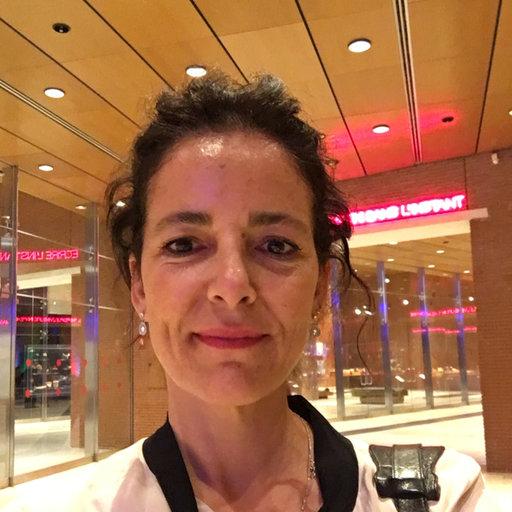
Cristina Paola Montefusco
UNIVERSITÀ DEL SALENTO
CEMAS
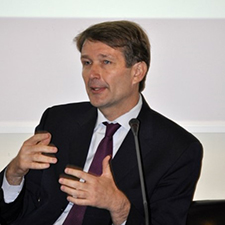
Nadan Petrovic
Coordinatore scientifico
LA SAPIENZA – CEMAS
Dr. Nadan Petrovic is professor of Strategies of International Cooperation at La Sapienza University of Rome. He hold Ph.D. in “History of Asylum in Italy since Constitution form 1948, in light of process of harmonization of EU policies in asylum”.
Dr. Nadan Petrovic is professor of Strategies of International Cooperation at La Sapienza University of Rome. He hold Ph.D. in “History of Asylum in Italy since Constitution form 1948, in light of process of harmonization of EU policies in asylum” and Master in International Protection of Human Rights at University of Rome “La Sapienza” as well as Law Degree – Bachelor of Laws (legally recognized by the Faculty of Law, University of Rome “La Sapienza”), Faculty of Law, University of Sarajevo.
During his professional career he covered several high ranking positions such as:
• Director at the Italian Ministry of Integration;
• Director of the Central Service of the Italian National System for Protection of Asylum Seekers and Refugees (SPRAR);
• Head of the Central Secretariat of the National Asylum Program (Program on reception, integration and voluntary repatriation of asylum seekers and refugees in Italy established by the Ministry of Interior, the UNHCR and the National Association of Italian Municipalities);
• Head of UNHCR/UNOPS Implementing Unit c/o National Asylum Program (see above);
• Senior Specialist for Integration of Asylum Seeker, Refugees and Migrants/Head of Sid Unit at IOM Coordinating Office for the Mediterranean countries
• Advisor to the Italian Undersecretary of State for Internal Affairs in charge for Immigration and Asylum;
• Advisor to the Head Department for Civil Liberties and Immigration of the Italian Ministry of Interior;
• Advisor to the Director General for Development Cooperation of the Italian Ministry of Foreign Affairs;
• Rapporteur of the Congress of Local and Regional Authorities of the Council of Europe (on Migration flows in South Eastern Europe).
• Founder and National Coordinator of ICS – Italian Consortium of Solidarity (the largest – over 60M euro annual turnover – consortia of NGOs and local bodies active on the field of human rights protection and international co-operation in Italy. The consortium was consolidated implementing partner of UNDP, UNOPS, UNHCR, IOM, the European Commission/ECHO and of the Italian governmental, regional and local institutions).
In addition to above, he has worked as senior consultant for European Commission (in quality of a Team Leader and a member of the team in charge for technical assistance to the Russian Federation, Republic of Moldova, Serbia and Montenegro), International Development Law Organization (IDLO), Ministry for Public Administration of Italy, National Observatory for Development Cooperation, Centre for international policy studies, Region Umbria and many NG0-es and other entities.
Sprachen und Bildung in Europa e.V
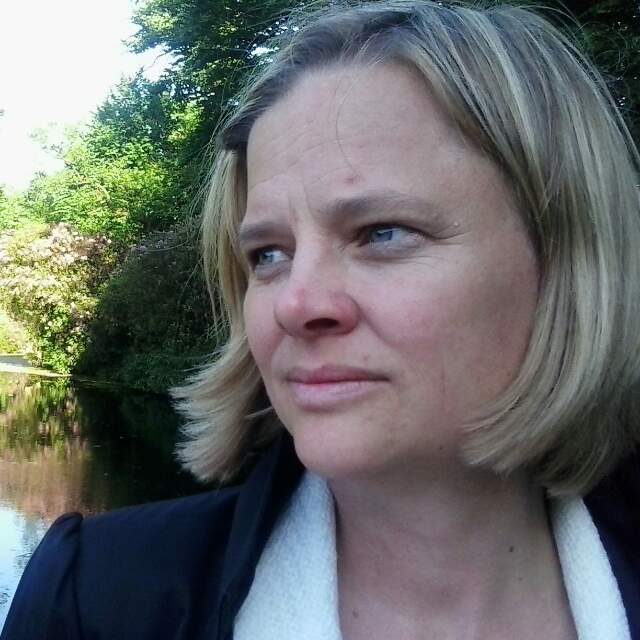
Maike Caiulo
Coordinatrice/Ricercatrice
Sprachen und Bildung in Europa e.V
Maike studied Social Anthropology (MA) at Freie Universität Berlin until 2001. Afterwards she qualified at Goethe-Institut as teacher for German as a foreign language (GFL). For many years she worked as a teacher for GFL in Italy and Germany, with particular focus on German for professional purposes. From 2013-2016 she collaborated in the project “Credit Points” at Beuth University of Applied Sciences, Berlin, which is part of the German “Integration via Qualification” network and aims to integrate migrants with foreign academic qualifications into the German labour market. Here she acted as co- author for two publications on Blended Learning approaches with migrant qualification programmes.
From 2016-2017 she worked for Vita Akademie GmbH, which focuses on adult education, and was here also in charge of theconceptual and paedagogical coordination for qualifcation courses for asylum seekers. She worked for Bildung und Sprachen in Europa e.V. as project coordinator and concept developer for several projects on migration and integration. Presently she is working fort he Johanniter Unfall-Hilfe e.V. as Head of the Berlin Department for Integration & Diversity.
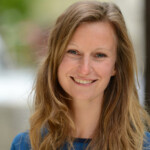
Helen Neumann
Coordinatrice/Ricercatrice
Sprachen und Bildung in Europa e.V
Chairperson of the association Bildung und Sprachen in Europa e.V. and manager of Start Relocation Services GmbH in Berlin. Being part of the Start team since 2011, she supports internationals and expats to settle in Germany and find legal ways for them to immigrate and work in Germany. Taking care of the whole application process for their Visa (work Visa, Visa for specialists, representatives, scientists, family reunion, students, interns and others) work and residence permits, she is gaining special knowledge of the immigration process and the particular German laws, like the Immigration Act, the Law on Residence and the Employment Regulations. Throughout her work, she works closely together with German Authorities, like the Federal Office for Migration and Refugees, the Federal Foreign Office, the Foreigners Office Berlin and their Business Immigraton Service. Furthermore, she gives professional advice on career opportunities for the German job market, on professional development possibilities and ways of recognition for foreign qualification holders. For the association Bildung und Sprachen in Europa e.V. she is in charge of filing applications for integration and refugee related Government projects and supports the overall missionto promoting education and cultural exchanges within Europe, with the goal of promoting and preserving the various European languages. She studied “Multilingual Communication” in Cologne and Mexico with focus on the English and Spanish language as well as intercultural approaches and theories.
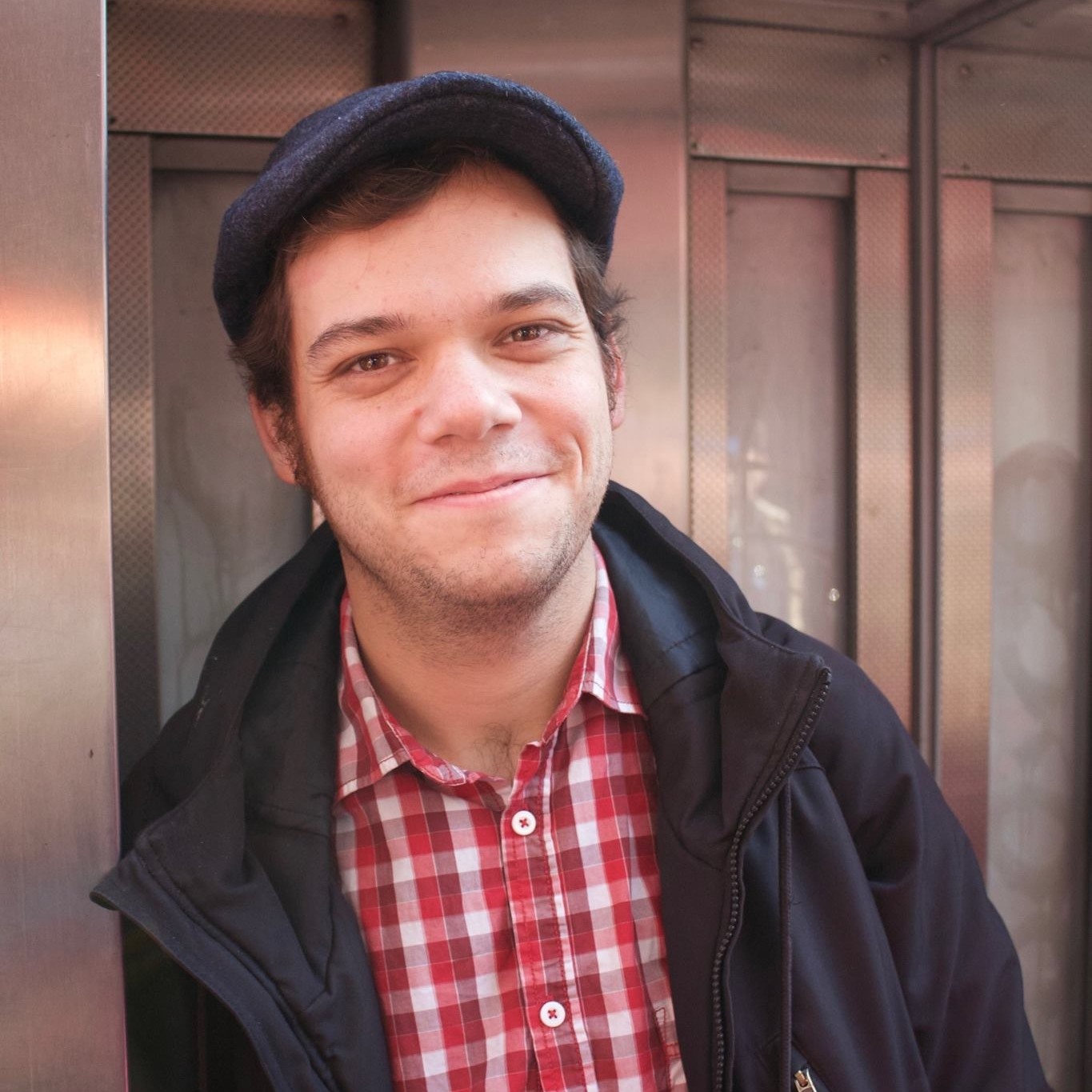
Philipp Piechura
Sprachen und Bildung in Europa e.V
Philipp studied Philosophy, Performance Studies, Social Theory and Sociology at the Universities of Bremen, Jena and Bielefeld. His current PhD – Project at the Hafencity University Hamburg researches alternative Forms of Refugee Accommodation in Germany. The core question is how the combination of social mix and functional mix in such housing projects is spatially organized and how this produces hybrid spaces and solidary relations between inhabitants and other users. Before that, Philipp worked for a Berlin based office for urban research and planning as a researcher in the Project „INTERPART – Interkulturelle Räume der Partizipation“. In the project, which was funded by the German Federal Ministry of Education and Research, his tasks included among others an international research of planning and participation cultures and the organization of an international academic symposium. Apart from that Philipp is working as a freelancer educator in the areas of political education and pedagogy. In 2015 this interest led him to help out for a few weeks in a emergency shelter for refugees. Since then he is pursuing his research on the housing situation of refugees. Currently he is a lecturer at the Bremen Centre for Performance Studies. Apart from that Philipp has experience in international work environments and projects, including an Internship at the New York Office of the Rosa-Luxembourg-Foundation and as a workshop leader in an exchange Program for student tutor between Germany and Chile. Recent publications include articles on questions of citizienship and housing access for refugees in Germany. Further research interests include urban studies, qualitative methods, space theory, as well as migration and border regime studies.
Coallia
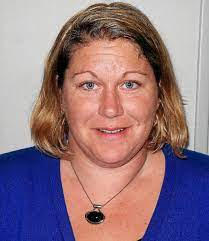
Patricia Briand
Coallia